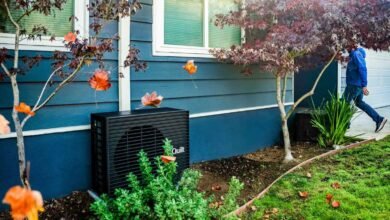Space DOTS Secures $1.5M Seed Funding to Track Orbital Threats

▼ Summary
– Bianca Cefalo founded Space DOTs in 2022 after growing frustrated with corporate bureaucracy and resistance to innovation in the space industry.
– Her company developed the SKY-I software platform to detect, interpret, and attribute natural and human-originated threats in orbit using proprietary and external data.
– Space DOTs recently raised a $1.5 million seed round, bringing total funding to $3.2 million, led by Female Founders Fund with participation from other investors.
– The company differentiates itself by owning both hardware and software, focusing on commercial and defense applications, and offering decentralized, resilient technology for multi-orbit operations.
– Cefalo aims to expand her team and prepare for upcoming missions, advocating for shared knowledge and improved understanding of space to protect critical infrastructure on Earth.
Frustrated by the slow pace of corporate innovation in the space sector, Bianca Cefalo decided to launch her own venture, Space DOTS, to tackle one of the industry’s most pressing challenges: accurately identifying and interpreting threats in orbit. The startup recently secured $1.5 million in seed funding, bringing its total raised to $3.2 million, in a round led by Female Founders Fund with participation from Sie Ventures, Feel Ventures, and General Electric Company.
Cefalo brings decades of aerospace experience to her role as founder, including work on NASA’s Insight Mission to Mars and product management at Airbus Defence and Space. Despite her background, she grew weary of the risk-averse culture and bureaucratic inertia that often stifle innovation in large organizations. “I was hired to be an innovator inside a corporate giant,” she recalls, “but in reality, I was being told ‘not too much.’” That frustration became the catalyst for creating Space DOTS in 2022.
The company’s flagship product, SKY-I, is a software platform designed to help space tech manufacturers and operators detect, interpret, and attribute both natural and human-made threats in orbital environments. Cefalo points out that nearly 15% of spacecraft experience anomalies or failures due to incomplete understanding of actual space conditions. Ground simulations, while useful, can only approximate the complex and variable realities of different orbital regimes.
Radiation, temperature extremes, and other environmental factors can lead to malfunctions often dismissed as mere “space weather” or glitches due to insufficient data. Space DOTS addresses this gap by generating proprietary in-orbit environmental data and integrating it with external sources. The platform offers real-time attribution, nowcasting, and forecasting capabilities, giving spacecraft what Cefalo describes as “the intelligence edge to survive and succeed in contested space.”
The company is already collecting data from its own payload in orbit and plans to expand its presence through future launches. Unlike some competitors who focus solely on forecasting, Space DOTS emphasizes threat attribution and serves both commercial and defense sectors. Another key differentiator is its decentralized software architecture, which Cefalo says enhances resilience and scalability for operations in cislunar and multi-orbit environments.
Reflecting on the fundraising process, Cefalo likened it to “dating-to-marry”, intense and highly selective. She connected with lead investors at Female Founders Fund through a cold outreach form, while existing investors at Sie Ventures helped facilitate a warm introduction. The dual approach proved successful, accelerating the funding round.
Looking ahead, Cefalo plans to use the new capital to grow her team in London and the U.S. and to prepare the technology for upcoming missions. She envisions a future where space intelligence is democratized rather than siloed, emphasizing that shared knowledge, not restricted access, will be essential for protecting critical infrastructure and ensuring safety both in orbit and on Earth.
“The more we understand what’s happening out there,” she says, “the better we can protect what matters down here.”
(Source: TechCrunch)





